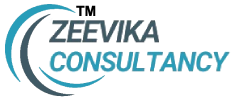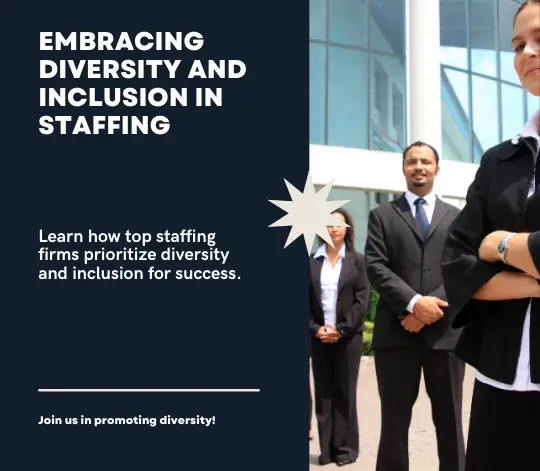How the Best Staffing Companies Ensure Diversity and Inclusion
Diversity and inclusion (D&I) are not just buzzwords for the best staffing companies; they are integral to their success. Embracing diversity goes beyond compliance—it fosters innovation, improves decision-making, and enhances employee satisfaction. Here’s how top staffing companies prioritize and ensure diversity and inclusion in their operations:
1. Leadership Commitment and Accountability
Leading staffing firms recognize that diversity starts at the top. They have senior leadership committed to D&I initiatives and accountable for progress. This commitment is reflected in policies, practices, and organizational culture that promote fairness and equal opportunities for all.
2. Inclusive Recruitment Practices
Top staffing companies employ inclusive recruitment practices to attract diverse talent. This includes:
- Unbiased Job Descriptions: Using inclusive language and focusing on skills and qualifications rather than specific demographics.
- Diverse Sourcing Channels: Utilizing diverse job boards, networks, and partnerships to reach a broader candidate pool.
- Blind Recruitment: Removing identifying information (e.g., name, gender, age) from initial application reviews to mitigate unconscious bias.
3. Diversity Training and Education
Education and training are crucial components of D&I initiatives at leading staffing firms. They conduct regular training sessions for employees on topics such as unconscious bias, cultural competence, and inclusive leadership. These programs raise awareness, promote understanding, and empower employees to contribute to a more inclusive workplace.
4. Employee Resource Groups (ERGs)
Staffing companies encourage the formation of Employee Resource Groups (ERGs) or affinity groups. These voluntary, employee-led groups provide a platform for employees to connect, share experiences, and advocate for diversity within the organization. ERGs contribute to a sense of belonging and foster a supportive workplace environment.
5. Mentorship and Sponsorship Programs
Effective mentorship and sponsorship programs are instrumental in supporting career development for diverse talent. Top staffing companies pair employees with mentors or sponsors who provide guidance, advocacy, and opportunities for growth. These programs help underrepresented employees navigate challenges, build networks, and advance in their careers.
6. Transparent Performance Metrics
Measuring progress is essential for driving accountability and continuous improvement in D&I efforts. Leading staffing firms establish clear, transparent metrics to track diversity goals and outcomes. These metrics may include representation at different organizational levels, retention rates among diverse groups, and employee satisfaction survey results.
7. Cultivating Inclusive Workplace Culture
Creating an inclusive workplace culture is a priority for top staffing companies. They foster an environment where diverse perspectives are valued, and all employees feel respected and heard. Initiatives may include celebrating cultural heritage months, hosting diversity-themed events, and promoting open dialogue on D&I topics.
8. Supplier Diversity Programs
Staffing companies with robust D&I strategies extend their commitment to supplier diversity. They partner with diverse-owned businesses and suppliers, supporting economic opportunities for minority-owned enterprises. Supplier diversity programs contribute to a more inclusive supply chain and broader community impact.
9. Continuous Evaluation and Adaptation
D&I initiatives are not static but evolve with organizational needs and societal changes. Leading staffing firms regularly evaluate their strategies, seek feedback from employees, and adapt practices to address emerging challenges and opportunities. Continuous evaluation ensures that D&I remains a strategic priority aligned with business goals.
10. External Engagement and Advocacy
Top staffing companies actively engage with external stakeholders to promote D&I in the broader community. They participate in industry forums, collaborate with diversity-focused organizations, and advocate for policies that advance equity and inclusion. By leveraging their influence, they contribute to creating positive social impact beyond their own operations.
Conclusion
Ensuring diversity and inclusion is not just a moral imperative but a business imperative for the best staffing companies. By fostering a culture of inclusion, implementing inclusive recruitment practices, and supporting diverse talent through mentorship and advocacy, these firms create workplaces where everyone can thrive. As they continue to lead by example, they set benchmarks for the industry and inspire positive change in the workforce and society at large.

